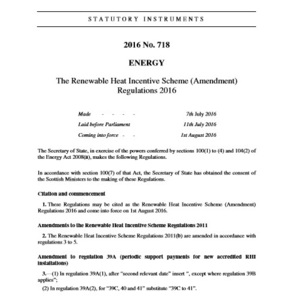REA: Surprise UK renewable heat cuts put investments at risk




July 28, 2016
BY Renewable Energy Association
Advertisement
Advertisement
Related Stories
U.S. manufacturers produced approximately 830,000 tons of densified biomass fuels in January, according to the April edition of the U.S. EIA’s Monthly Densified Biomass Fuels Report. Sales of densified biomass fuel reached 650,000 tons.
The U.S. Department of Energy 2023 Billion-Ton Report: An Assessment of U.S. Renewable Carbon Resources identifies sustainable forestry as a key pillar in the effort to increase the nation’s biomass production.
Drax Group plc on April 25 released a first quarter 2024 trading update, reporting that the company’s wood pellet production business has started the year well despite challenges. Drax Power Station also performed well during the quarter.
The USDA on April 23 awarded more than $194 million in loans and grants through the agency’s Rural Energy for America Program. Biogas and bioenergy projects were among those selected to receive funding.
Drax Group on April 18 announced a carbon removals deal with C-Zero Markets, an environmental consultancy. Under the deal, C-Zero will purchase carbon dioxide removals credits from Drax representing 2,000 metric tons of permanently stored carbon.





